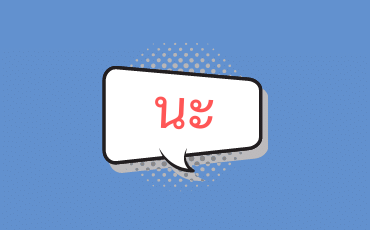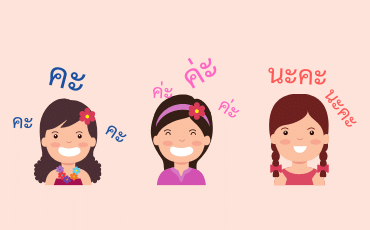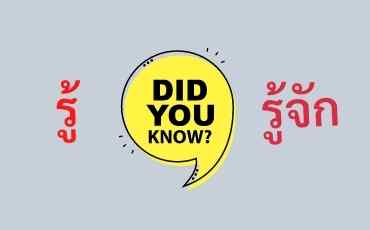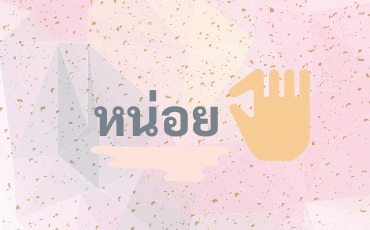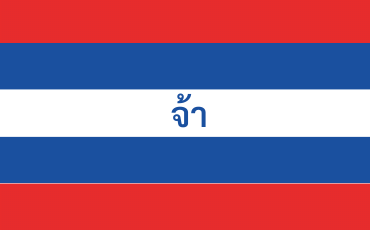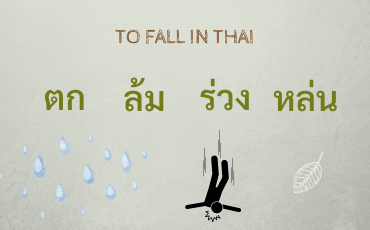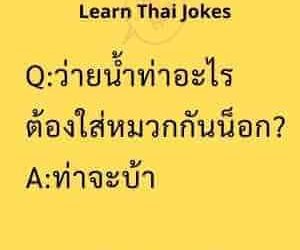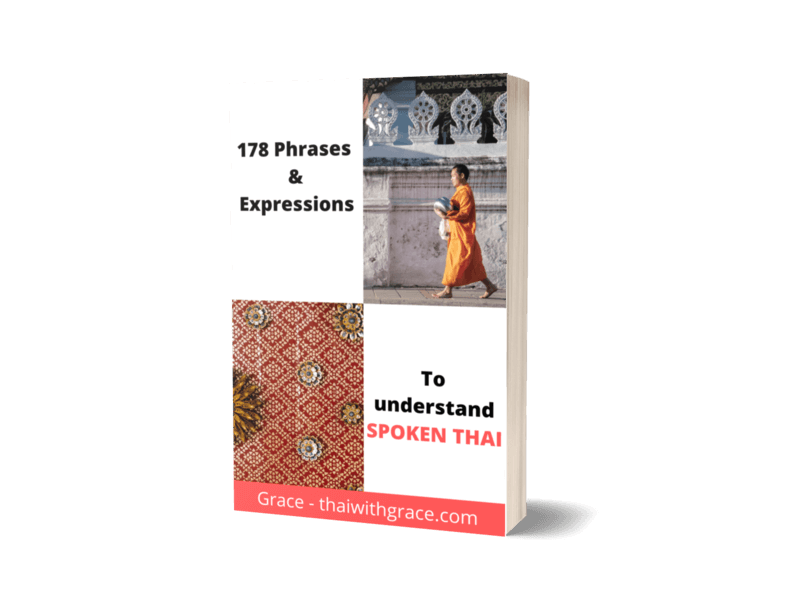Blog
Use na like a Real Thai! | Thai particle: นะ
If you've been to Thailand, you've definitely heard Thai people use the word นะ (náa) a lot. After reading this article, you will understand what is na in Thai, how, and when to use na. นะ is a Thai particle that is used at the end of clauses/sentences to express:...
How to use คะ ค่ะ นะคะ (ká, kâ, and ná ká)
In this lesson, we will learn the differences between คะ, ค่ะ, and นะคะ (ká, kâ, and ná ká). These are polite particles that women add at the back of sentences. Even some Thais get a little confused with these three because we forget the reading rule and we ending up...
The difference between รู้, รู้จัก, and ทราบ
The word 'To know' can be divided into two words in Thai which are รู้ (and ทราบ) and รู้จัก (róo, sâap, róo jàk). In this article, we will discover the differences between these words. To know a person, a place, a thing = รู้จัก róo jàk รู้จัก róo jàk is used to...
Top 100 most frequently used Thai verbs
Learn the Thai verbs you will encounter most often! To be: is, am, are เป็น bpenExample: I am a Thai person. ผมเป็นคนไทย pŏm bpen kon taiTo haveมี meeExample: I have Thai friends. ผมมีเพื่อนคนไทย pŏm mee pêuan kon taiTo doทำ tamExample: What did you do in Thailand?...
How to say Cheers in Thai 🍻
You might go out to drink a Leo or a Singha beer with your Thai friends. Do you know how to say cheers in Thai? In this article, I will teach you the ways to say cheers and explain what they mean. Quick answer: The most common ways to say cheers in Thai language is...
A ‘Little’ word that will make your daily life easier – The meaning of noi หน่อย
In this article, I will teach you about a very useful Thai word: noi หน่อย (nòi). หน่อย is a word meaning "a little" and it is a word often used to make a sentence sound nicer, less harsh, and more friendly. One of the most common uses of หน่อย is in the word นิดหน่อย...
How to say Thank you in Thai
Having manners is very important in Thailand (and everywhere in the world 😉). Being able to say thanks or thank you in Thai language will be very useful as you will probably say thanks multiple times a day. In this article, I will explain the most common ways to say...
How to use the word ja in Thai – Meaning of จ้า
จ้า (jâa) Ja in Thai can be used as a replacement for krap and ka. In case you don't know, Krap and Ka are particles you add at the end of sentences to sound polite and friendly. If you want to sound more friendly, and/or more like a rural Thai person, you should try...
Different ways to say to fall in Thai
In Thai Language, there are a few ways to say to drop or to fall. I will explain the different ways and when to use each. 💡 Keep in mind that a lot of times the word ลง (long) is added after the vocabulary meaning "to fall" because ลง means down. So it's like saying...
How to express whoever, whenever, wherever, whatever, whichever, however in Thai
The question words in Thai ใคร (krai), เมื่อไร (mêua rai), ที่ไหน (têe năi), อะไร (à-rai), ไหน (năi), อย่างไร (yàang rai) (who, when, where, what, which, how) can become whoever, whenever, wherever, whatever, whichever, and however depending on the sentence. Let me...
Learn Thai Jokes – Part 2
https://www.youtube.com/embed/IIIMgWdeqhE Q: ว่ายน้ำท่าอะไรต้องใส่หมวกกันน็อก?A: ท่าจะบ้า Q: wâai náam tâa à-rai dtông sài mùak-gan-nók A: tâa jà bâa Joke explanation This joke is a play on words. The joke translates to: Q:...
Plural form in Thai
When you want to change a word from singular to plural in English, most of the time you just add an s at the end (kid => kids, horse => horses, laptop => laptops). There are exceptions such as child =>children, woman => women). Thai language does not...

